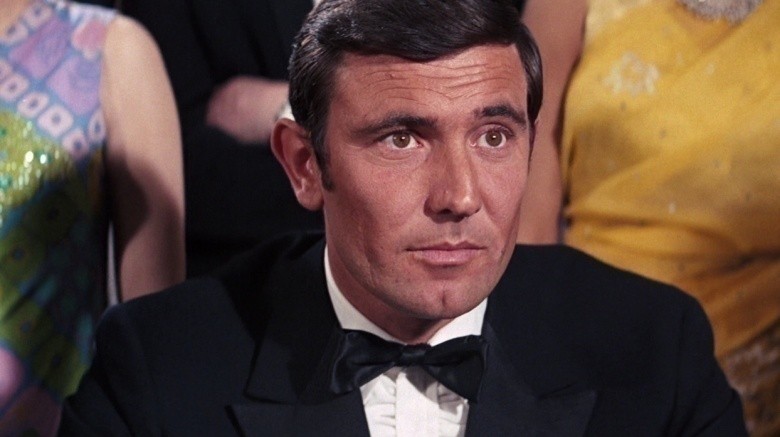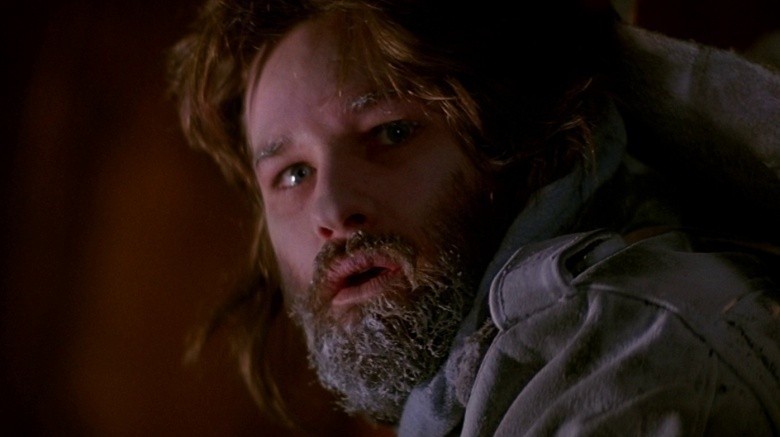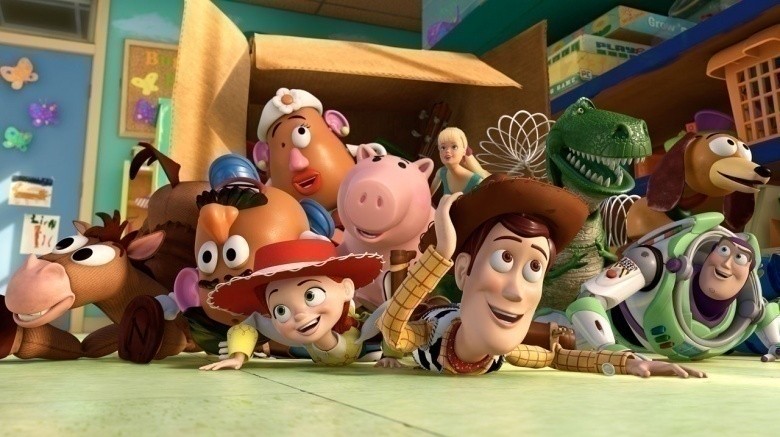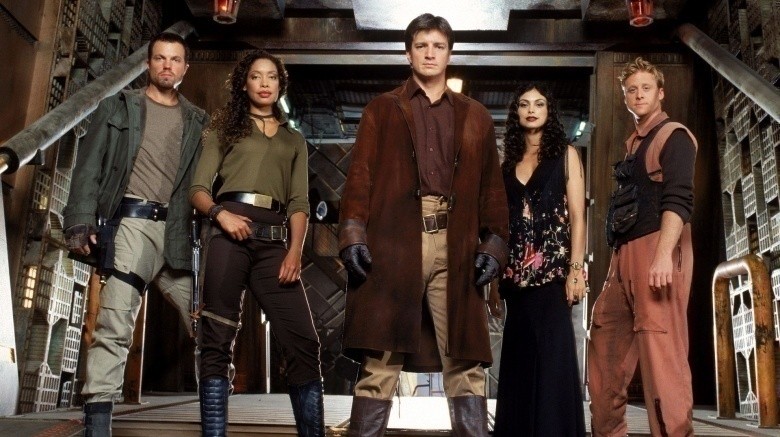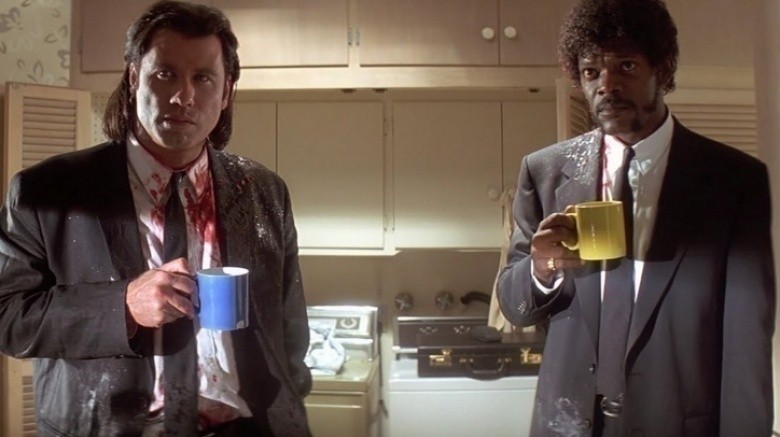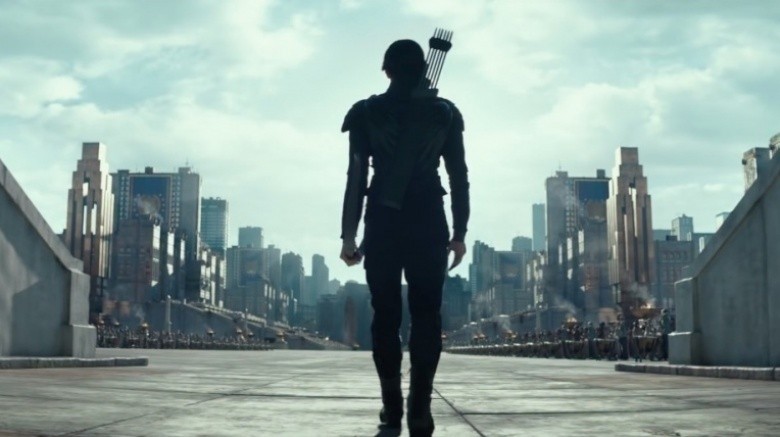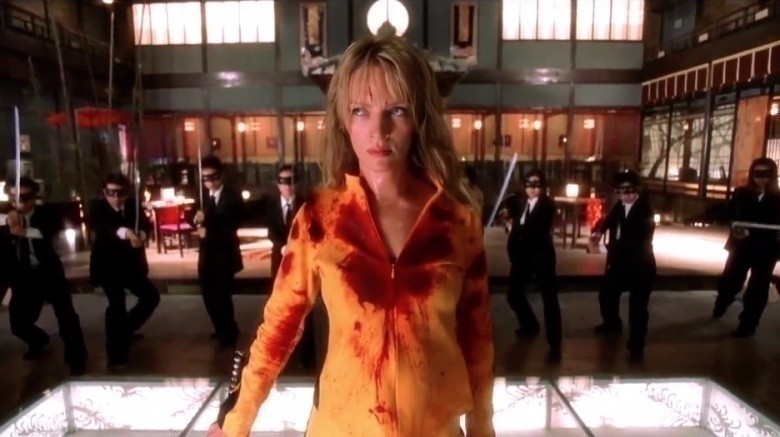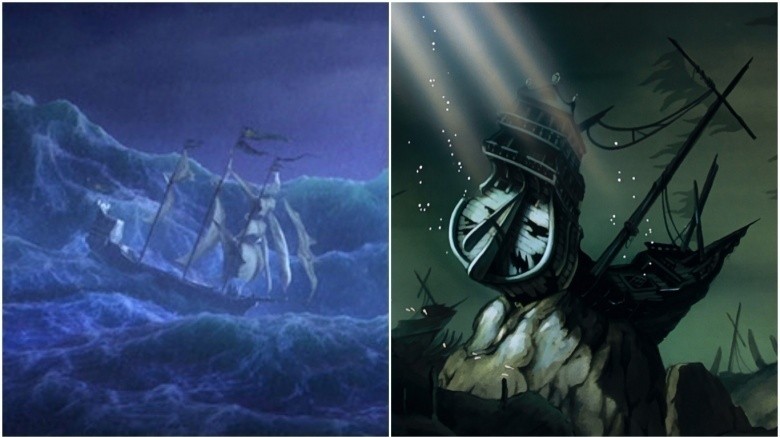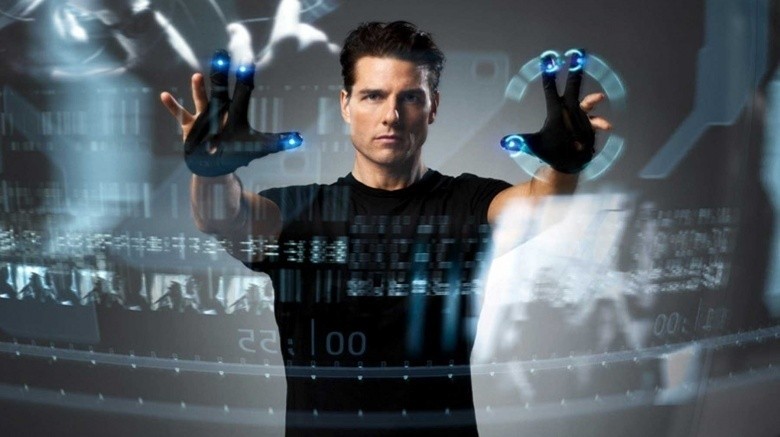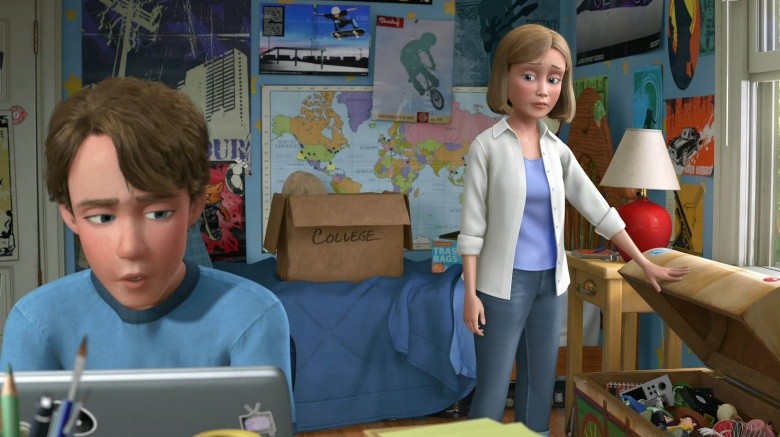Movie Theories That Are Probably True
Quite how the world of James Bond works isn't particularly clear, because it seems as though we're expected to assume all these adventures are happening to the same guy, even as the years pass by around him. George Lazenby's famous quip beyond the fourth wall ("This never happened to the other fella") has been the only nod the filmmakers have made to the fact that James Bond keeps regenerating Doctor Who-style.
But what about this: what if James Bond isn't an actual spy at all, but rather a codename passed down from agent to agent? It seems to work for M and Q, so why wouldn't it work for James Bond himself? It's a compelling argument when you start to think about it.
Childs is The Thing
At the end of John Carpenter's 1982 classic The Thing, McReady (Kurt Russell) and Childs (Keith David) sit opposite each other in the snow, waiting for death, with neither of them knowing whether the other is, in fact, the shape-shifting alien they've been hunting all along.
Or maybe they do know: one fan theory (of many) posits that the drink McReady offers to Childs is actually one of the Molotov cocktails used earlier in the movie. As Childs doesn't react to chugging down the gasoline, this proves he's The Thing—and it adds an even bleaker perspective onto the end of what is already a pretty dark movie.
Pixar's shared universe
On the surface, the Pixar movies might not seem to have much in common beyond a studio logo and cutting-edge CGI, but if you stop to think about it—really, really think about it—the idea that every single one of these characters inhabits the same universe starts to make a lot of sense. It's all summed up in "The Pixar Theory," a widely read essay posted by Jon Negroni, that arranges every Pixar movie in chronological order and argues for the existence of a time loop created by Boo in Monsters Inc.—who's also the witch in Brave. It probably sounds kind of crazy out of context, but once you dive down this rabbit hole, there's no going back.
Alien and Firefly take place in the same universe
Joss Whedon didn't have the greatest time writing Alien: Resurrection, and the end product definitely doesn't rank among the best-loved entries in the series. But he wasn't totally ready to wash his hands of the franchise after the project ended, as evidenced by a cool blink-and-you'll-miss-it moment in the pilot episode of his 26th-century space Western, Firefly. During the show, main character Malcolm "Mal" Reynolds shoots down an enemy ship, and in the gun's viewfinder, you can glimpse the logo of the Weyland-Yutani company—the same conglomerate that causes so many problems in the Alien movies. Firefly took place after the events in the Alien trilogy, and the two properties shared a studio, so it would have been relatively easy (in theory) for Whedon to keep tying them together over time—if only Firefly had lasted more than 14 episodes.
Quentin Tarantino's cinematic universe(s)
Quentin Tarantino's movies are so richly detailed, and imbued with such a distinctive style, that they can feel like a world unto themselves—and according to one impressively complex theory, that's exactly what they are. The ways in which Tarantino's films interweave with one another are far too numerous to get into here, but suffice it to say there are lots of connections between the characters, and they're not an accident. According to Tarantino, he actually views his creations as inhabiting two universes—one in the "real world," and a fictional one inside it. As he's put it, when the characters in Reservoir Dogs and Pulp Fiction go to the movies, they're watching Kill Bill and From Dusk Till Dawn.
The Hunger Games: England won the Revolutionary War
Prepare to get your history on for this theory. In the premise posited by Redditor TheMartianManhunter, The Hunger Games films take place in an alternate history in which Great Britain defeated the colonies during the Revolutionary War. This theory points to the parallel between the original 13 colonies and the 13 districts of Panem, which are set in an area once known as Appalachia. In this timeline, the 13th district/colony is destroyed to instill fear and keep order in the other 12. The Hunger Games are also established to keep that fear going, making the Capitol a point of administration through which the UK keeps a close eye on their investment. And President Coriolanus Snow is really more of a local governor, rather than an actual president. But seeing as he gets a cushy pad either way, he probably doesn't complain about the semantics too much.
Pulp Fiction: Mia Wallace starred in Kill Bill
Okay, so it's been established that Quentin Tarantino's movies take place in a shared universe of sorts. Reservoir Dogs and Pulp Fiction take place in the same world, and the films Kill Bill and From Dusk Till Dawn are movies the characters in that universe might see in theaters. In fact, according to one fan theory, one Pulp Fiction character actually starred in Kill Bill. Mia Wallace, the character played by Uma Thurman in Pulp Fiction, talks about a failed TV pilot she filmed called Fox Force Five, and the plot she describes sounds an awful lot like Kill Bill. Of course, Fox Force Five was never picked up by any network, but who's to say it wasn't turned into a movie instead? Next time you watch Uma slice and dice bad guys as the Bride, have a Royale with cheese.
The Frozen parents’ sunken ship was in The Little Mermaid
Disney is known for including winks to other chapters of its animated collection in its films, and in Frozen, fans found a boatload of connections. Eagle-eyed Tangled fans spotted Rapunzel and Eugene among the crowd at Elsa's coronation, which begged the question of why they made a royal cameo. Writer-director Jennifer Lee has confirmed that Elsa's parents, the King and Queen of Arendelle, were en route to a wedding when their vessel crashed, so if they died on the way to the princess' wedding in Tangled Ever After, Rapunzel and her husband would owe it to the fam to show up.
The real kicker is the idea that the ill-fated Arendelle ship was the wreckage explored below sea level by Ariel in The Little Mermaid, which is supported by perceived locations of the films' kingdoms, the timeline, and the shape of the ship. Frozen co-creator Chris Buck didn't shut down the theory but added another wrinkle: that Elsa's folks may have survived the ship, become marooned on an island, and given birth to Tarzan, introducing yet another in-house homage to the mix.
The Minority Report ending was imagined
After being falsely accused of two murders, Tom Cruise's PreCrime Captain John Anderton was detained and sentenced to a permanent dream state prison in which, per the warden, people say "you have visions, that your life flashes before your eyes, that all your dreams come true." Afterwards, for Anderton, they conveniently did just that.
Many fans of the film, and its Philip K. Dick source material, believe Anderton may have just imagined himself being exonerated after taking down the real killer, rekindling his relationship with his wife, and even looking forward to a new baby with her. Considering the bleak tone of the first two acts as compared to his apparent happy ending, it seems like a plausible explanation, especially remembering the scene in which he returns to his wife's house and sees their long-lost son's tricycle lingering in the lawn as though freshly ridden, six years after his disappearance.
The Toy Story parents were in the middle of a divorce
The relationship of Andy with Woody, Buzz Lightyear, and the rest of his animated crew of playthings was the real focus of the Toy Story series, but a deeper look at his human life reveals something incredibly bleak about the kid's reality: his parents were possibly in the middle of a divorce throughout the series as a result of his dad's desertion of his mom and their two children.
Those who believe as much point to the lack of photos or even mention of Andy's father, the fact that Mama Davis didn't wear a wedding ring, and the family's move to a downsized home. Toy Story 3 director Lee Unkrich himself did not deny the inference. He once admitted that the filmmakers intended for Andy's dad to be absent from his story but cautioned, "we've never addressed it directly, nor have we given any explanation for where he is or why he's absent."
Deckard is a Replicant
This is a theory we're throwing in as a bonus that has been debated for decades and was ultimately confirmed to be true! Ridley Scott's 1982 sci-fi neo-noir classic Blade Runner is all about androids known as replicants. These androids, who look and think like humans, can actually be self-aware, although they're mainly used for dangerous and menial work on off-planet colonies. Some of them try to abandon their hazardous work and hide on Earth, where they're tracked by Blade Runners, a group of special police operatives who specialize in finding and executing escaped replicants. Blade Runner Rick Deckard (played by Harrison Ford) takes on a hefty case making him responsible for eliminating a group of rogue replicants, a quest that leaves him questioning his duties as he struggles with the idea that many of these artificial people just want to live. One replicant he meets during his investigation even believes she is human.
The idea that Deckard himself is a replicant has been debated for years. Harrison Ford claims that he was playing a human character. According to BBC News, Ford mentioned that he and the director had talks about Deckard being a replicant, and they both agreed he was human during filming. In subsequent interviews over the years, Ridley Scott has admitted that Deckard is indeed a replicant. Perhaps Scott told Ford that Deckard is human just to make his performance that much more convincing?
intro
We all love a good fan theory, but as entertaining as it can be to try and find deeper layers and hidden meanings in our favorite films, some ideas are definitely more outlandish than others. Here's a look at a few fan theories that might hit closer to home than most viewers ever suspected.
